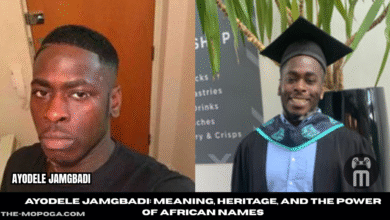Claude Edward Elkins Jr. is a remarkable example of someone who started at the very ground floor and rose to the executive suite. His trajectory—from a road brakeman in the rail industry to Executive Vice President & Chief Commercial Officer at Norfolk Southern Corporation—is not merely a personal success story, but a lesson in perseverance, adaptability, and strategic vision. In this article we will explore several titles and keywords that help capture the essence of his career, explain why each title matters, and then present a full-length profile that delves into his background, achievements, leadership style, and impact—so you can understand how Claude Elkins Jr. built his legacy.
1. Early Life, Military Service and Educational Foundation
Claude Edward Elkins Jr. was born and raised in Southwest Virginia, a region steeped in the tradition of railroads, manufacturing, and hard-earned livelihoods. Growing up in that context gave him early exposure to both the manual demands and the culture of persistence that the rail industry required. Before embarking on his corporate journey, Elkins served in the United States Marine Corps—an experience that instilled discipline, accountability and leadership under pressure. This military foundation laid a key behavioral anchor for the rigorous environments he would later navigate.
Education played a crucial role in his ascent. He earned a Bachelor of Arts in English from the University of Virginia’s College at Wise, which may seem an unconventional starting point for a logistics executive—but the liberal-arts grounding provided him with strong communication, critical thinking and analytical skills. He then pursued an MBA with a concentration in Port & Maritime Economics from Old Dominion University, equipping him with specific knowledge of global transportation and supply-chain issues. On top of that, he completed executive-level programs at institutions including Harvard Business School, the University of Virginia’s Darden School of Business, and the University of Tennessee Supply Chain Institute. This blend of hands-on early experience and formal education gave Elkins a unique blend of practical know-how and strategic acumen.
2. Rising Through the Rail-Industry Ranks: Operations to Marketing
In 1988, Claude Elkins began his rail career with Norfolk Southern as a road brakeman—arguably one of the most demanding and foundational roles in rail operations. From there he advanced to conductor, locomotive engineer and relief yardmaster, gaining intimate operational insight into the mechanics, human factors and network dynamics of rail transport. Because he worked at the ground level, Elkins developed credibility with frontline teams and an understanding of the system from the rails up.
After decades in operations, he pivoted into commercial roles—specifically intermodal marketing, bridging rail with trucking, shipping and logistics. For close to twenty years he honed his expertise in intermodal freight, developing customer-centric strategies, building relationships with shippers and aligning rail operations with market demands. In 2016 he became Group Vice President of Chemicals Marketing, and in 2018 Vice President of Industrial Products. These roles required scaling his leadership from tactical operations to broad revenue-and-market responsibilities, managing large product portfolios, supplier relationships, and logistical networks.
3. Executive Leadership: Chief Commercial Officer at Norfolk Southern
In December 2021, Elkins was promoted to Executive Vice President & Chief Commercial Officer (CCO) of Norfolk Southern Corporation—a major milestone that marked his transition into the senior-executive tier. In this role he leads key business divisions including Intermodal, Automotive, Industrial Products, Real Estate, Industrial Development, Short Line Marketing, Field Sales and Customer Logistics. He is responsible not only for revenue growth but also for aligning commercial strategy with operations, customer needs and emerging logistics trends.
Under his leadership the company emphasizes customer-oriented solutions, leveraging Elkins’ combined background in hands-on rail work and strategic marketing. His domain spans complex freight flows, competitive pressures between modal transport (rail vs. road vs. sea), and sustainability imperatives such as reducing carbon emissions through efficient rail transport. His movable between operational credibility and commercial innovation has helped the company navigate industry disruptions and supply-chain shifts.
4. Leadership Style, Industry Impact and Community Engagement
What sets Claude Elkins Jr apart is the marriage of operational experience with commercial strategy and a grounded leadership style. Having “earned his stripes” on the rail floor, he commands the respect of operations teams and understands their realities. As a leader he has been described as approachable, data-driven yet people-focused, comfortable bridging the field and the boardroom.
Elkins also engages in industry and community service: he serves on the board of directors of the National Association of Manufacturers and TTX Company, sits on the Georgia Chamber of Commerce as Vice Chair, participates in the Georgia State University Marketing Roundtable, and engages with The Conference Board’s Council for CMOs. This external leadership and thought-partnership reflect his view that corporate leadership extends into broader economic, policy and educational ecosystems.
His career and leadership have a broader industry implication: they illustrate how rail transport can remain competitive in modern logistics, how operational roots can evolve into commercial advantage, and how leadership derived from the field can effect strategic transformation.
5. Challenges, Strategic Priorities and Future Outlook
Leading in the freight-rail sector today means facing multiple headwinds: shifting global trade patterns, disruptions in supply chains (e.g., during pandemics or ports congestion), competition from trucking and sea freight, regulatory change, sustainability pressures (carbon emissions, modal shift policies) and customer expectations for agility and visibility. Elkins’ role as CCO means he must align Norfolk Southern’s commercial offerings with these evolving dynamics—developing intermodal solutions, optimizing automotive and industrial product flows, leveraging real-estate assets and short-line networks, and deploying technology and analytics to support customer logistics.
From his strategic vantage point, priorities likely include driving growth in intermodal freight (which combines rail, sea and truck), expanding logistics services beyond pure rail transport, and integrating sustainability as a business driver rather than cost. His unique background gives him credibility in all these dimensions, from the rails to the boardroom.
Conclusion: A Blueprint for Grounded Leadership and Strategic Growth
Claude Edward Elkins Jr story is more than a biography—it is a blueprint for leadership, career growth and strategic transformation. He shows how starting at the operational level provides the perspective, credibility and insight that propel someone into commercial leadership. His journey—from the rail yard to executive oversight of logistics strategy—demonstrates that discipline, continual learning and a strong alignment between operational grounding and strategic vision matter deeply.
For those aspiring to leadership in industries marked by complexity, disruption and competition, Elkins serves as a reminder that leadership built on foundation—worked in the field, refined in classrooms, executed in boardrooms—can produce sustained impact. His story is not only about advancement, but about translating experience into leadership, aligning market demands with operational realities, and stewarding an organisation to the future.
Frequently Asked Questions (FAQ)
1. Who is Claude Edward Elkins Jr?
Claude Edward Elkins Jr is Executive Vice President & Chief Commercial Officer of Norfolk Southern Corporation, a major U.S. freight-railroad company.
2. What was his career path?
He began in 1988 as a road brakeman at Norfolk Southern, advanced through operations (conductor, locomotive engineer, yardmaster), shifted into intermodal marketing and industrial products roles, and was promoted to executive leadership in 2021.
3. What is his educational background?
He holds a BA in English from the University of Virginia’s College at Wise, an MBA in Port & Maritime Economics from Old Dominion University, and executive credentials from Harvard Business School, UVA Darden and the University of Tennessee Supply Chain Institute.
4. What distinguishes his leadership style?
His leadership is distinguished by deep operational credibility, strategic commercial acumen, a people-centered approach, and engagement with broader industry/ecosystem challenges—providing a bridge between field operations and board-level strategy.
5. What are his key responsibilities as CCO of Norfolk Southern?
His responsibilities include overseeing the company’s Intermodal, Automotive and Industrial Products divisions, Real Estate and Industrial Development, Short Line Marketing, Field Sales and Customer Logistics—aligning commercial strategy with operations, customers and market dynamics.




